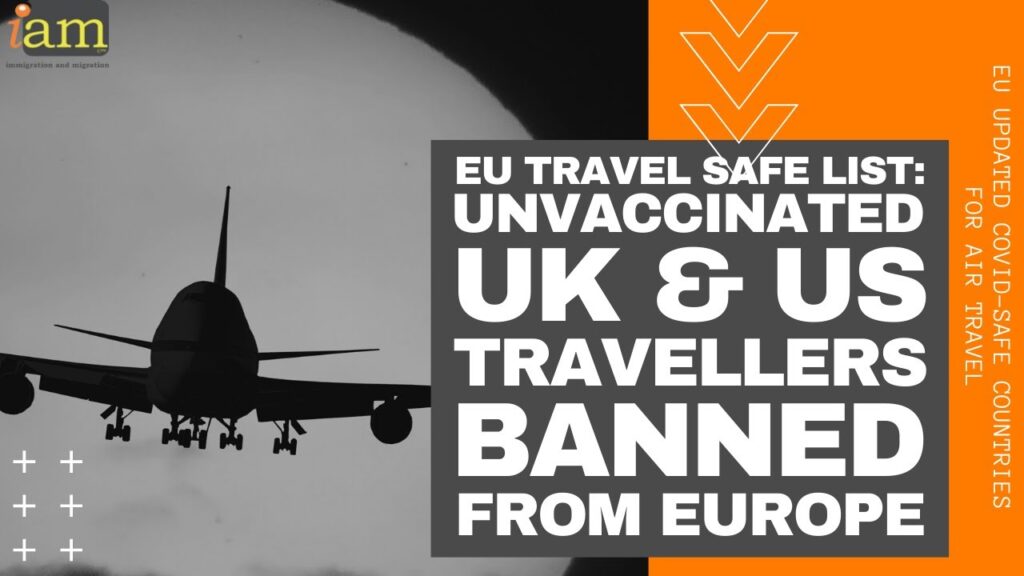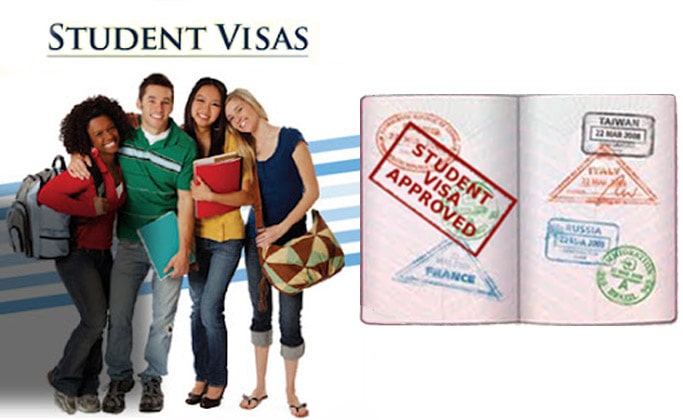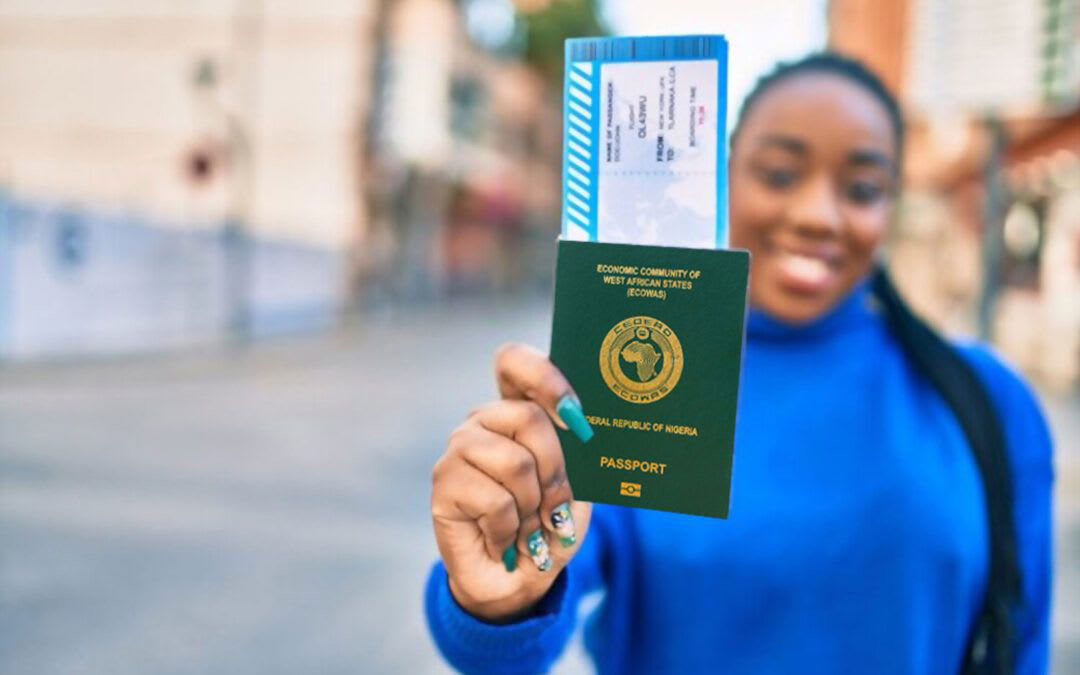
Visa Ban Appeal Process Step-by-Step: A Complete Guide.
Visa ban appeal processes can be devastating, especially when they interfere with personal, academic, or professional plans. Whether you’re planning to study abroad, reunite with family, or attend an important event overseas, being hit with a visa ban or visa denial can feel like a closed door. However, a visa ban is not always the end of the road. If you believe your visa ban was unjustified or if you’ve corrected the reason behind the refusal, you may be eligible to appeal the decision, and the ban will be lifted, and a visa to travel will be granted.
In this article on Visa ban appeal processes, you will learn through the step-by-step visa ban appeal process, covering all the crucial stages, legal procedures, and best practices to follow. Whether you’re dealing with a U.S. visa ban, Schengen entry refusal, or any country’s travel restriction, this comprehensive guide will help you understand what to do and how to take the right direction for an easy step to leave the visa ban.
Table of Contents
- What is a Visa Ban?
- Common Reasons for Visa Bans
- Can You Appeal a Visa Ban?
- When to Consider an Appeal
- Step-by-Step Visa Ban Appeal Process
- How to Write a Visa Appeal Letter
- Documents You’ll Need for the Appeal
- Where and How to Submit the Appeal
- How Long Does the Appeal Process Take?
- What Happens After Submitting the Appeal?
- Can You Reapply Instead of Appealing?
- Tips to Improve Your Chances of a Successful Appeal
- Hiring a Lawyer for a Visa Appeal: When and Why
- FAQs About Visa Ban Appeals
- Final Thoughts
What is a Visa Ban?
A visa ban is an administrative or legal decision made by a country’s immigration authority, denying an individual the right to enter or apply for a visa to that country for a specific period or indefinitely. It may apply to a person, a group, or even citizens of an entire country, depending on political, health, or security concerns.
For example, if the U.S. government imposes a travel ban on specific countries or individuals due to security concerns, people from those countries may not be allowed to enter or even apply for a visa without special permission or a waiver.
Common Reasons for Visa Bans
Visa bans or visa refusals can be triggered by a variety of factors. Understanding why your visa was denied or banned is essential before you begin the appeal process. Common reasons include:
- Criminal record or ongoing legal case
- Security threat or national security flag
- Immigration violations (e.g., overstaying a visa)
- Fraudulent documentation
- Previous deportation or removal
- Public health concerns (e.g., pandemics, lack of vaccination)
- Country-wide political sanctions
- Failure to meet visa eligibility criteria
Can You Appeal a Visa Ban?
Yes, in many cases, a visa ban can be appealed. However, the ability to appeal depends on the country that issued the ban and the specific type of visa you applied for. For example:
- U.S. visa denials under INA 214(b) are generally not appealable, but you can reapply.
- U.S. visa refusals under INA 212(a) (inadmissibility) may be appealable or eligible for a waiver.
- Schengen visa refusals can be appealed in writing to the embassy or consulate that made the decision.
Every country has different appeal protocols, so it’s essential to research the immigration laws of the specific country you’re dealing with.
When to Consider an Appeal
You should consider appealing a visa ban if:
- You have clear evidence that the visa decision was made in error.
- You believe your rights were violated or that due process was not followed.
- You can provide strong supporting documents to counter the reason for the ban.
- You have new information or changed circumstances since the ban was issued.
Step-by-Step Visa Ban Appeal Process
Here’s a detailed step-by-step breakdown of how to appeal a visa ban effectively:
Step 1: Understand the Reason for the Ban
Carefully read the visa refusal letter or notification. It should specify:
- The law or policy under which the decision was made
- Whether the ban is temporary or permanent
- Whether you’re eligible to appeal or request a waiver
Understanding this is the foundation for your next steps.
Step 2: Research Appeal Eligibility
Check if the immigration laws of the issuing country allow for appeals in your type of case. Some visa bans are final with no appeal process, in which case reapplying may be your only option.
Visit official government websites or contact the embassy.
Step 3: Gather Evidence
You’ll need to support your appeal with solid documentation. This may include:
- Proof of ties to your home country (for non-immigrant visas)
- Clean criminal records
- Medical reports or vaccine proof (if health-related)
- Employment or academic letters
- Updated or corrected documents
Step 4: Write a Visa Appeal Letter
Write a professional and respectful visa appeal letter (more on this below). It should:
- Be addressed to the appropriate authority.
- Reference the refusal or ban notice.
- Clearly state your case and reason for appeal.
- Attach supporting documents
Step 5: Submit the Appeal
Most countries will require submission to:
- The visa officer or embassy that issued the ban
- A designated appeal authority or court (for legal appeals)
Some appeals can be submitted online, others require postal mail.
Step 6: Wait for Response
After submitting your appeal:
- Acknowledge receipt from the embassy or immigration body.
- Follow up if no response is received after the expected timeline.
- Avoid reapplying while an appeal is being processed unless advised.
How to Write a Visa Appeal Letter
Here’s a simple structure for an effective visa appeal letter:
1. Header
- Your full name, address, and passport number
- Date of submission
- Subject line: “Visa Ban Appeal – [Your Name] – [Visa Type]”
2. Salutation
- Address to “Visa Officer” or the relevant authority
3. Introduction
- State why you’re writing: To appeal a visa refusal or ban
- Mention the date of the refusal and your case reference number
4. Body
- Clarify the issue or misunderstanding.
- Present facts and attach evidence
- Express your ties to your country or other supporting factors
5. Conclusion
- Kindly request a review or reversal of the decision.
- Mention that you are available for further questions
6. Sign-off
- “Sincerely,” followed by your full name and contact information.
Documents You’ll Need for the Appeal
The documents you submit with your appeal depend on the ban’s cause, but typically include:
- Copy of the visa refusal letter
- Passport bio-data page
- Criminal clearance certificate (if applicable)
- Proof of relationship (family reunification cases)
- Bank statements and employment letter
- Proof of property ownership or rental agreement
- Letter of invitation or sponsorship
- Updated medical/vaccine records
Where and How to Submit the Appeal
This varies by country:
- U.S. Visa Appeals: If denied under INA 212(a), you may request a waiver via Form I-601 or I-212.
- Schengen Visa Appeals: Submit in writing to the consulate within the specified timeframe (typically 15–30 days).
- UK Visa Appeals: Some cases allow an appeal to the First-tier Tribunal (Immigration and Asylum Chamber).
Visit the immigration website of the respective country for details.
How Long Does the Appeal Process Take?
- Some appeals are processed within 2–4 weeks.
- Complex legal appeals or waiver requests may take several months.
- During this period, you cannot reapply for the same visa unless advised.
What Happens After Submitting the Appeal?
There are three possible outcomes:
- Appeal approved – Your visa is granted, or the ban is lifted.
- Appeal denied – You may be advised to reapply or request a waiver.
- Further action needed – The embassy might request more documents or an interview.
Can You Reapply Instead of Appealing?
Yes. In some cases, reapplying is more efficient than appealing, especially if:
- Your circumstances have changed.
- The refusal was due to incomplete documentation.
- The visa was denied under non-appealable grounds (e.g., INA 214(b))
However, make sure you address the reason for the previous denial before reapplying.
Tips to Improve Your Chances of a Successful Appeal
- Be honest and transparent.
- Provide updated and complete documents.
- Don’t submit unnecessary or forged documents.
- Show strong ties to your home country.
- Stay polite and professional in all communication.
Hiring a Lawyer for a Visa Appeal: When and Why
You should consider hiring an immigration lawyer if:
- Your visa ban is based on complex legal grounds (e.g., criminal inadmissibility)
- You were misrepresented by an agent or consultant.
- Your case involves deportation or asylum.
- You are appealing to a tribunal or immigration court
Legal assistance can improve your chances, especially for U.S., Canadian, or UK cases.
FAQs About Visa Ban Appeals
Q1: Can I appeal a visa refusal if I used an agent?
Yes. However, ensure that your appeal letter is personal and not a template. Address any errors the agent made.
Q2: How many times can I appeal a visa ban?
Usually, once, depending on the country. Repeated denials may require a reapplication.
Q3: Can I travel to another country while appealing a visa ban?
Yes, unless you’re banned from multiple countries or are on an international watchlist.
Q4: Do all visa bans come with a time limit?
No. Some bans are permanent; others last 1–10 years. Check your refusal notice.
Final Thoughts
Facing a Visa ban or refusal can feel frustrating and unfair. But you’re not powerless. By following the correct steps to appeal, organizing your documents, and writing a well-structured appeal, you stand a fair chance at getting your visa ban overturned and smiling again.
Visa ban appeal processes: every country handles appeals differently, so always refer to official embassy websites and immigration authorities for the most accurate and up-to-date instructions. And remember, sometimes a second chance is all it takes to get back on track with your travel, education, or migration plans to avoid a second term ban.
For more info.
UK Visa Appeal GuidanceUnited KingdomVisit SiteSchengen Visa Appeal ProcessEuropean Union (Schengen Area). Visit SiteCanada Visa Refusal and Appeal InfoCanadaVisit SiteAustralia Visa Refusal Appeal RightsAustraliaVisit Site
Related content:





